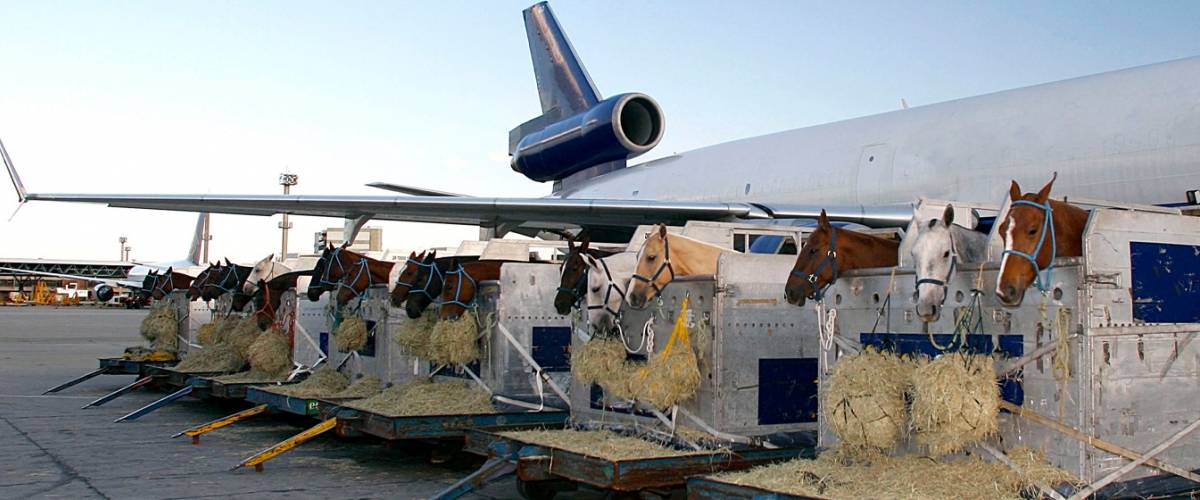
September 17, 2020 – Traveling by road, sea and air, horses are perhaps the most frequently transported domestic species in the world. Unfortunately, this can cause severe stress for the animals and increase their risk for injury, disease and poor welfare. While many studies have documented the adverse effects of road travel on horses, far less is known about how they fare when they take to the skies.
Dr. Barbara Padalino, an associate professor of animal science at Italy’s Università di Bologna, is trying to change that with a new study being funded by Morris Animal Foundation. It’s the first project where stakeholders and researchers will work together to investigate how horses are managed when transported by plane.
The goal is to identify factors that increase or decrease the risk of health and behavioral problems. What the researchers learn will be used to develop protocols for agencies like the International Air Transportation Association (IATA).
“Right now, IATA’s guidelines are largely based on the experience of industry professionals with little scientific evidence or validation,” said Dr. Padalino. “They focus on air safety and cargo requirements, with limited provisions for the welfare needs of horses. We need to update flight regulations using evidence collected in a scientific way.”
While precise numbers aren’t known, Dr. Padalino estimates that about 30,000 horses are shipped, on average, every year for competitions, breeding and sales, and sometimes for the relocation of owners. A recent study of horses transported by air on 81 flights to Hong Kong found that for every 100 horses flown, about 11% got pneumonia. On 60% of the flights, at least one horse was affected. The flights’ durations and time of year, in the spring, were identified as risk factors.
In this prospective study, researchers will work with horse owners, air cargo operators, flight grooms and veterinarians to determine the incidence of health and behavioral problems observed in overseas air-transported horses. Dr. Padalino’s team will train the stakeholders on how to fill out surveys with questions tailored to their respective roles. For instance, veterinarians will be asked about horses’ body conditions, heart rates and alertness, among other observations, before, during and after a journey.
Data will be collected from departure to five days post-arrival, within the window of time when symptoms usually reveal themselves. Horses that develop health issues will be treated in accordance with the regulations within each jurisdiction.
Dr. Padalino hopes to gather data on about 2,000 horses flying on routes between Europe, the United States, South Africa, Japan, Hong Kong, New Zealand and Australia. She hypothesizes that not only is air transport a mental and physical stressor for horses, but that horses with different temperaments or with less transport experience or training will have a higher incidence of transport-related health problems.
“Researchers and air cargo service providers have rarely had the opportunity to collaborate like this, which has left gaps in our knowledge of the consequences of horses’ movements by air,” said Dr. Padalino. “By working together, I believe we can develop evidence-based guidelines to improve the lives of horses that are flown worldwide.”
She adds there may also be economic benefits to horse owners from the study, by improving care and outcomes during and after flights to reduce health complications. In the United States alone, the cost to transport a horse by air can range from $5,000 to $30,000.
Morris Animal Foundation funds a wide array of health studies in horses and other large animals, including llamas and alpacas. These include investigations include areas such as metabolic and musculoskeletal issues, cancer and ophthalmology. Learn more about our current horse studies and join us in our work to improve their health and welfare by making a gift today to support equine health research.




